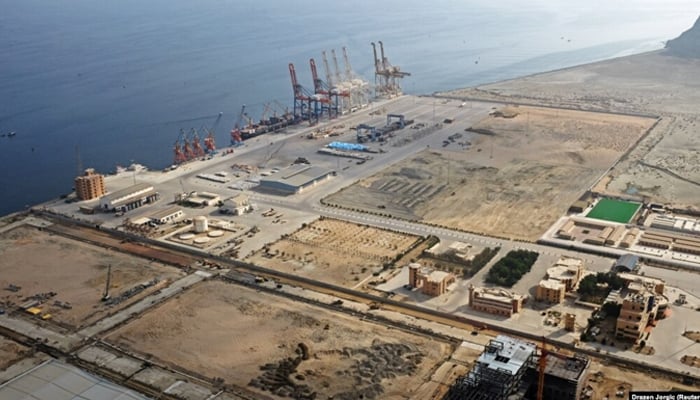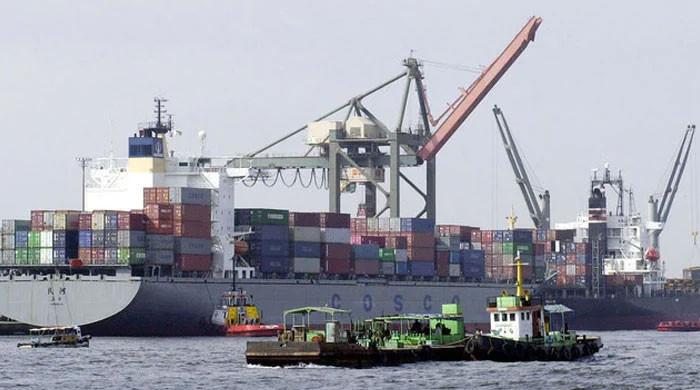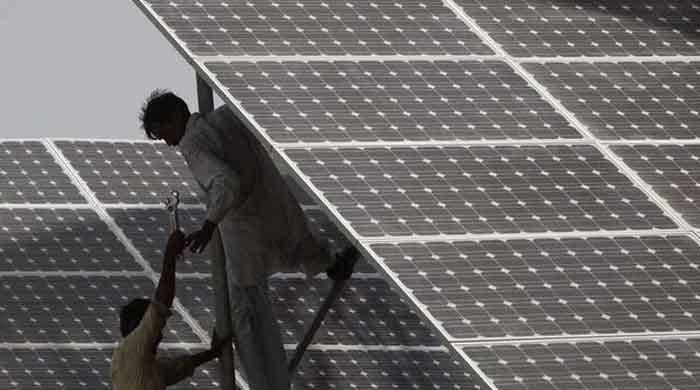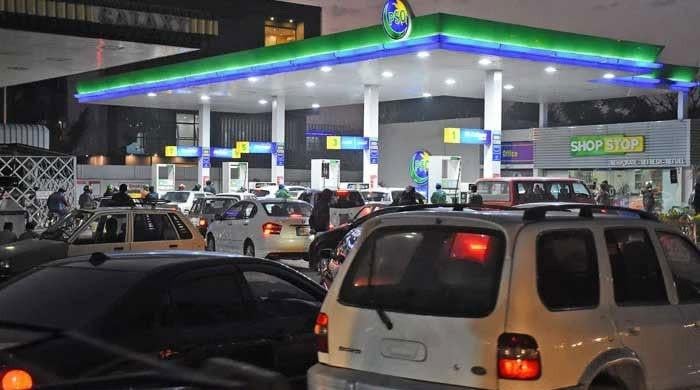Islamabad addresses Riyadh's concerns on multibillion-dollar investments
Both sides waiting for significant event to sign and commence work on construction of long-awaited refinery, say officials
September 10, 2023

- KSA interested in investments to the tune of $25-30 billion several projects.
- Riyadh expressed interest in constructing refinery worth $10-$12bn.
- Much-awaited progress made by addressing kingdom's concerns: officials.
ISLAMABAD: Pakistan will need to address three major concerns of Riyadh to materialise the multibillion-dollar investments in viable copper, mineral, refinery, and solar projects, The News reported Sunday.
The much-hyped Special Investment Facilitation Council (SIFC), jointly supervised and operated by the military establishment and civilian authorities, has been playing its role in removing stumbling blocks hindering investment attraction.
KSA alone is interested in investments to the tune of $25-30 billion for the aforementioned projects.
Firstly, KSA has expressed interest in constructing a refinery in Hub or Gwadar with an estimated investment of $10-$12 billion. It has been discussing this since 2019, but it has not materialized yet.
One of the major concerns expressed by KSA was providing incentives through the long-delayed Petroleum Investment Policy, mainly due to the 18th Constitutional Amendment, as provinces were also involved.
Secondly, the incentives offered were below the desired level. This concern has caused delays in materialising the refinery project. The concerns were related to coordinating policies between the Centre and the provinces and ensuring smooth remittance of dollars earned in profits and dividends without interruptions.
Now, officials involved in negotiations with KSA claim that much-awaited progress has been made by addressing their concerns, as KSA-specific assurances have been provided. Both sides are now waiting for a significant event to sign and commence work on the construction of the long-awaited refinery, probably in Hub, which will attract an investment of $10 to $12 billion.
However, no formal date has been confirmed yet.
The Kingdom of Saudi Arabia has also expressed interest in investing in the Reko Diq project to secure 10% to 20% of its shares.
Barrick Gold Corporation and Pakistan’s state-owned enterprises (SOEs), as well as the Balochistan government, will each own 50% shares in the Reko Diq project. There will be a total investment of $4 billion in Phase 1 and $3 billion in Phase 2.
Production is expected to start in the fiscal year 2027-28. The International Finance Corporation (IFC) will provide risk insurance for the execution of these multibillion-dollar projects.
However, Pakistan decides to offload its 10% to 20% shares, it would lose management control. Islamabad is making efforts to convince Barrick Gold to offload a number of equal shares, so that there is no issue of management control in this multibillion-dollar project.
Some sources suggest that Barrick Gold appears reluctant to offload its shares, making it difficult for Islamabad to offer its own shares to the Kingdom of Saudi Arabia.
This scribe has sent questions to Barrick Gold Corporation but received no reply as of the filing of this report.
When one of the top officials working in the SIFC was contacted, he replied that a transaction adviser has been appointed to work out various modalities for offering shares in a strategic sale, including valuations.
“Our preference is that the GoP and other shareholders offer equivalent shares for a strategic partnership. The governance arrangement would thus remain undisturbed,” he said, adding that it was too early to suggest anything as the advisory work was still in progress.
Regarding the 600-megawatt solar project, where KSA has shown interest, so far, the regulator Nepra has yet to determine its tariff. In its previously proposed tariff, no investors showed interest in investing in this much-needed project.
There are only two options: either to offer attractive rates for solar-related tariffs or leave it for competitive bidding. This policy decision will now determine the fate of the 600 MW solar project.











